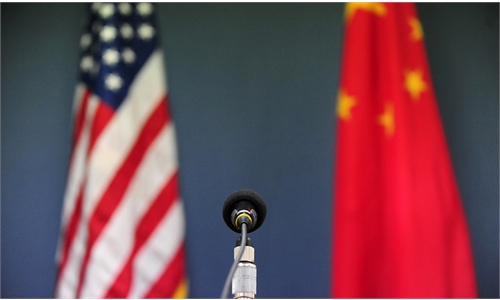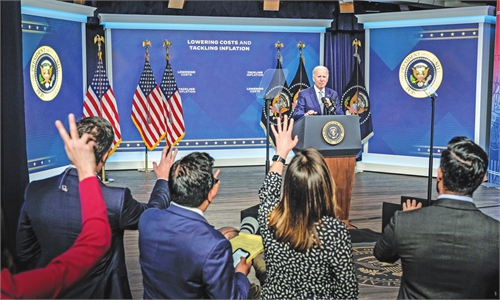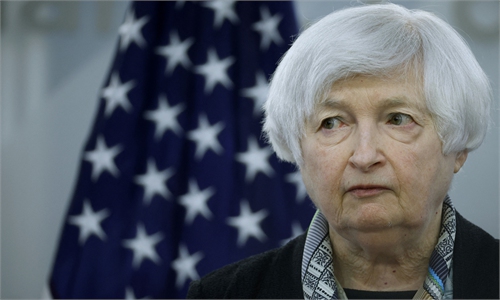US trade chief openly contradicts Biden as the White House faces tough decision on tariffs

tariff Photo:VCG
US Trade Representative Katherine Tai said on Tuesday that the US must be "strategic" on whether to remove tariffs on Chinese goods, pushing back on what President Joe Biden mentioned a day earlier, when he said that he would consider removing some Trump-era levies in order to ease inflation.
Such diverging views among US officials reveal the chaos in the US political system, but they could also represent a coordinated political show aimed at gauging the reaction of the US society before any decision is made, experts said.
"With respect to the tariffs, our approach as with everything in this relationship, is to be strategic," Tai said on Tuesday in an interview with Bloomberg. "We have to keep our eye on the ball in terms of how to effectively realign the US-China trade and economic relationship."
Tai didn't say whether the administration would remove the tariffs, or give a time frame for making a decision.
The remarks were at odds with what Biden himself said on Monday, which was that he's considering removing some of the tariffs and would talk with Treasury Secretary Janet Yellen after returning to the US from Asia, stressing that the tariffs were imposed by the last administration.
"On the surface, we can see that the US political system is chaotic, with subordinates refuting their superiors," Gao Lingyun, an expert at the Chinese Academy of Social Sciences in Beijing, told the Global Times on Tuesday. However, on a deeper level, it could be a deliberate move by the US government to observe the opinions of the public as it ponders its decision.
"It is obvious that the US is deliberating whether to remove the tariffs, but it is still hesitant, as lifting tariffs could be seen as being soft on China and would make Democrats vulnerable to political attacks during the midterm elections," Gao said.
In this case, the US government felt it was prudent to see how events unfolded and test the reaction of all sectors of society before making a decision, and if opposition is strong, some officials will clarify or rebut the previous statements, Gao said.
The different approaches to the idea of tariff reductions also reflect the conflicting interests of various departments. Specifically, the approach of Tai has been at odds with that of Yellen as well as other officials, who have argued that the removal of tariffs could ease the financial burdens of companies and consumers.
Yellen on May 18 confirmed she is pushing for the Biden administration to lift some tariffs on Chinese goods that "aren't very strategic" but are instead hurting US consumers and businesses, media reports said.
Internal discussions are underway about the punitive Section 301 tariffs imposed by Trump on hundreds of billions of dollars in Chinese goods, Yellen said.
While Yellen has tended to focus on tariff reductions to lower inflation, other officials like Tai — who are not in a position to worry about inflation — might see the tariffs as leverage to suppress China, experts said.
The US consumer price index accelerated 8.3 percent in April, higher than the 8.1 percent estimate, and the highest level in more than 40 years.
Gao said that the removal of additional tariffs on Chinese products could lower US consumer inflation by 1.5 percentage points from the current level, but the US is not likely to reach a final decision before the midterm elections.
"It will depend on the US president to make the final decision, but the back-and-forth debates and tests are expected to continue for a while," Gao added.



